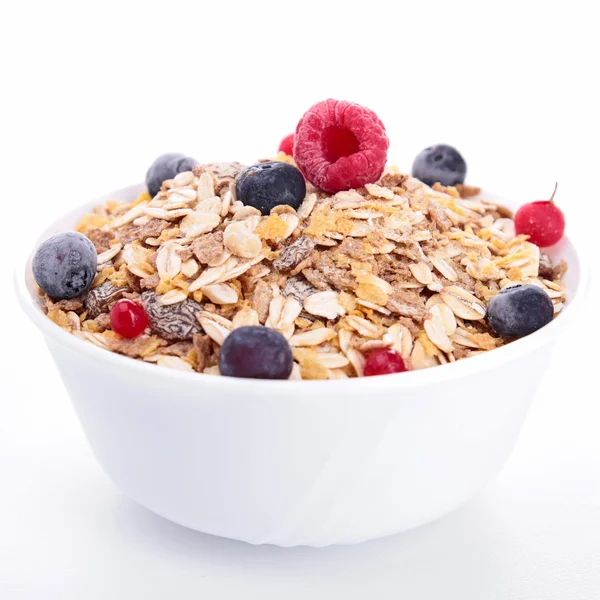Yes, cereals can have a number of benefits, especially when choosing whole-grain varieties. Keep reading to learn all the benefits.
Cereals are edible grains that come from grasses cultivated for their starchy seeds. They are a staple food for many cultures around the world and provide a significant portion of the global population’s dietary energy.
Some of the most common cereals include:
- Wheat
- Rice
- Maize (corn)
- Oats
- Barley
- Rye
- Millet
- Sorghum
Cereals have awesome nutritional value as they are a good source of carbohydrates, protein, fiber, and vitamins. They are also relatively low in fat.
Whole-grain cereals are the healthiest type of cereal, as they contain all three parts of the grain kernel: the bran, germ, and endosperm. The bran and germ are rich in fiber, vitamins, and minerals, while the endosperm is a good source of carbohydrates.
Health Benefits of Cereals

1. Heart-Healthy Benefits
Whole grains found in cereals can help reduce the risk of heart disease. They contain antioxidants, such as lignans, which contribute to lower cholesterol levels and improved heart health.
2. Weight Management
Cereals are a low-calorie option that can help you maintain a healthy weight. Their high fiber content ensures that you stay full longer, reducing the likelihood of overeating.
3. Lower cholesterol levels
Cereals can help to lower cholesterol levels, especially the oat type. Oats contain a type of soluble fiber called beta-glucan, which has been shown to reduce LDL (bad) cholesterol levels. Beta-glucan works by binding to cholesterol in the digestive tract and preventing it from being absorbed into the bloodstream.
Studies have shown that consuming 3 grams of beta-glucan per day can reduce LDL cholesterol levels by 5-10%. A serving of oatmeal typically contains about 1-2 grams of beta-glucan, so eating oatmeal on a regular basis can help to lower cholesterol levels.
In addition to lowering LDL cholesterol, beta-glucan may also help to increase HDL (good) cholesterol levels. HDL cholesterol helps to remove cholesterol from the arteries and transport it back to the liver, where it can be eliminated from the body.
4. Energy levels
Whole-wheat cereals is another specific type of cereals that is good. They are a good source of carbohydrates, which are the body’s main source of energy. Carbohydrates are broken down into glucose, which is used by the body’s cells for energy. Whole-wheat cereals also contain B vitamins, which are important for energy production. B vitamins help the body to convert carbohydrates into energy.
In addition to providing energy, whole-wheat cereals are also a good source of fiber. Fiber helps to slow the digestion of carbohydrates, which helps to keep blood sugar levels stable. This can help to prevent fatigue and provide sustained energy throughout the day.
Here are some examples of whole-wheat cereals:
- Shredded wheat
- Oatmeal
- Whole-wheat toast
- Whole-wheat pita bread
- Whole-wheat crackers
Here are some tips for choosing healthy cereals:
- Look for cereals that are labeled as “whole grain” or “100% whole grain.”
- Choose cereals that have at least 3 grams of fiber per serving.
- Limit cereals that have more than 10 grams of sugar per serving.
- Avoid cereals that have added unhealthy fats, such as hydrogenated oils.
By following these tips, you can choose cereals that are both nutritious and delicious.
Advice from Experts
Cereals can be a part of a healthy diet, but they cannot be replaced for all foods. Cereals are a good source of carbohydrates, fiber, and some vitamins and minerals, but they are not a complete source of all the nutrients that the body needs. For example, cereals are low in protein and healthy fats.
A healthy diet includes a variety of foods from all food groups, including fruits, vegetables, protein foods, and dairy. Replacing all foods with cereals would not provide the body with the nutrients it needs to stay healthy.
In addition, some people may have allergies or intolerances to cereals. For example, people with celiac disease cannot eat gluten, which is a protein found in wheat, barley, and rye. People with gluten intolerance may also experience digestive problems after eating gluten-containing foods.
If you are concerned about your diet, it is important to talk to a doctor or registered dietitian. They can help you create a healthy eating plan that meets your individual needs.







Leave a Reply